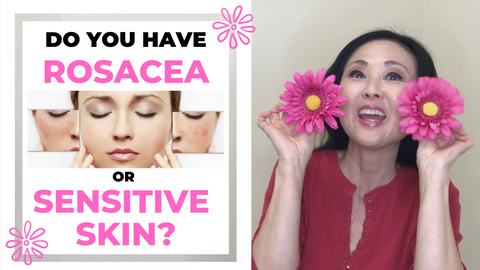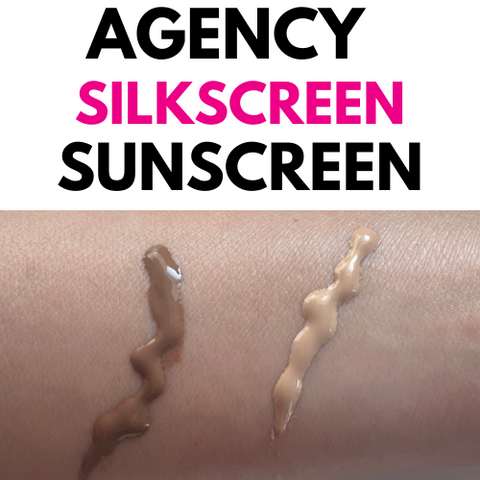The Truth about Vitamin C and your skin is focusing on what is important to achieving the results for your skin AND the formulation of the Vitamin C skin care product that you are using.
Nowadays, with almost every skin care line touting “VITAMIN C”, it is almost impossible to know WHICH Vitamin C skincare product is best for your specific skin type.
Best Vitamin C Skin Care Products: What to Look For:
The best vitamin C skin care products are not simply in looking up “brands”. Many vitamin C skin care brands label their Vitamin C skin care products with the actual wording of “Vitamin C”, even though it may be an actual vitamin C derivative and NOT the actual L-Ascorbic Acid vitamin C.
The first thing to know is that many clinical studies have shown that consistent Vitamin C topical application has shown to be a very effective way to slow signs of aging of the skin, even up skin tone, and help prevent visible UV damage on the skin.
HOWEVER, the biggest challenge for many vitamin c skin care products is being able to keep the vitamin C stable enough to be active when applied on the skin and to be able to be delivered into the skin WHILE still being active.
According some clinical studies, the magic elixir combination that has been proven to be keep the vitamin c stable and active long enough to show visible improvement in and on the skin is a combination of:
.5% Ferulic acid (plant derived antioxidant)
15% L-Ascorbic Acid
1% Vitamin E
This has been shown to increase the efficacy of Vitamin C up to eight times. This combination has been shown to reduce “chronic and acute photo damage”.
Vitamin C vs Vitamin C Derivatives in Skin Care Products:
The bioactive form of Vitamin C is L-Ascorbic acid. Naturally, the vitamin C is equally found as L-Ascorbic acid and D-Ascorbic Acid (dehydroascorbic acid). Both are reciprocally interchangeable. When L-Ascorbic acid oxidizes it turns into D-Ascorbic Acid.
Although L-Ascorbic acid is added to many vitamin C skin care products such as cleansers, lotions, and creams, the most effective way to deliver the vitamin c into the skin, according to many studies, is in the serum form.
When the ionic charge is removed , it can travel more efficiently across the stratum corneum.
Depending on the formulation of the different vitamin c skin care products, studies have shown that the effectiveness of the vitamin c ranges but only up to a concentration of 20%.
However, in order to maintain the stability of the vitamin c, the pH of the product need to be a pH of 3.5 or less.
For some skin types, this can result in an increase in dryness, scaliness, sensitivity and redness.
Because Vitamin C is water soluble, many times you will see cream based serums, lotions, and creams use different forms of vitamin C derivatives that are lipophilic and are more stable and gentle with dry, sensitive skin because of the slow and steady release of the ingredient.
A study was done by a group of Japanese scientists that showed in order for skin to receive “adequate” photo protection, the topical application needs to be done in regular eight hourly applications.
Vitamin C Topical Use vs Vitamin C Supplements for the Skin
When using vitamin C for the sole purpose of addressing age spots, hyper pigmentation, fine lines and wrinkles and preventative premature aging of the skin, studies have shown that the DIRECT application of Vitamin C on the targeted area of concern ON the skin is more effective than taking high doses of vitamin C supplements.
Clinical studies have shown that even taking high dosage of vitamin C supplements, the amount absorbed in the gut is limited.
In summary, the TRUTH about Vitamin C and YOUR skin is that the most important factors for the Vitamin C to effectively help prevent premature aging and sun damage are:
– Serum form is the best delivery system for most skin types
-pH of the vitamin C serum needs to be 3.5 or less
-the combination of .5% Ferulic Acid, 15% Vitamin C, and 1% Vitamin E has been shown to be the most effective in the stabilization of vitamin C and increased the potency by 8x.
-Regular and frequent application also has shown to increase the photo protection of the skin by neutralizing the free radicals BEFORE they incur damage.
If you have dry, sensitive skin or are using Retin A ,AHA’s, or any other potentially sensitizing ingredient and you find that Vitamin C does not work well with your skin, please stay tuned for more videos on other options in using vitamin C as a part of your skin care routine.
Here are some other vitamin C products you may be interested in:
What’s Better than Vitamin C for skin?
Tried this Vitamin C Serum for 45 Days and this is what happened…
Skinceuticals Skin Store Specials:
From time to time Skin Store has specials on Skinceuticals if you are interested in purchasing Skinceuticals Vitamin CE Ferulic Serum, you can use this code:
CODE: CHRISTY
*please note that I am an affiliate with Skin Store and at no cost to you, you may receive a discount and I may receive a small commission.
Sources used:
https://en.wikipedia.org/wiki/Vitamin_C
https://onlinelibrary.wiley.com/doi/abs/10.1111/jocd.13323
Farris PK. Cosmetical Vitamins: Vitamin C. In: Draelos ZD, Dover JS, Alam M, editors. Cosmeceuticals. Procedures in Cosmetic Dermatology. 2nd ed. New York: Saunders Elsevier; 2009. pp. 51–6
https://pubmed.ncbi.nlm.nih.gov/18310938/



